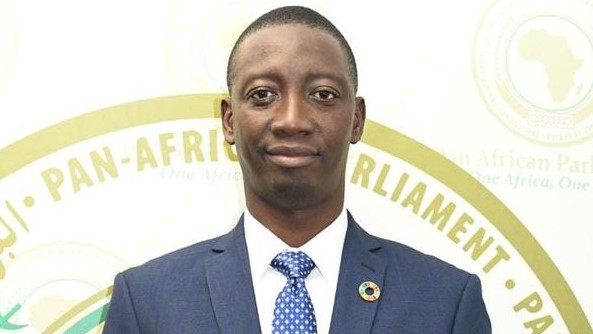By Kebba AF Touray
Seeking to bring clarity, transparency, and procedural rigor to a centuries-old presidential power, Hon. Alhagie Mbow, the National Assembly Member for Upper Saloum, on Friday, July 11, 2025, tabled the Prerogative of Mercy Bill, 2025 before lawmakers in the final sitting of the Second Ordinary Session of the legislative year.
The proposed legislation aims to provide a detailed legal framework for how the President of the Republic exercises the power to grant pardons—a prerogative that is enshrined in Section 82 of the 1997 Constitution but has remained largely unregulated and opaque. While the Constitution grants the President the authority to issue pardons “after consultation with the Committee on the Exercise of the Prerogative of Mercy,” it does not set out how petitions are to be initiated, reviewed, or acted upon.
“The bill sets out a comprehensive process on how the committee operates—from the receipt of applications to interviews with both convicts and victims,” said Hon. Mbow during his presentation to the National Assembly.
The Prerogative of Mercy—a legal relic rooted in monarchal traditions—remains a powerful executive tool found in most democratic systems. In The Gambia, it has drawn public scrutiny in recent years over concerns about arbitrary pardons and the lack of transparency in how beneficiaries are selected. Critics have pointed to instances where convicts of serious crimes, including sexual assault and economic crimes, were released without public explanation or victim consultation.
Mbow’s bill seeks to close these gaps. It outlines the procedures by which convicts or their relatives can submit petitions, the criteria for qualifying petitioners, and the process for interviewing relevant parties. Importantly, it introduces a structured path for handling applications—from submission to review, recommendation, and final decision by the President.
“The administration of the entire process will rest with the Ministry of Justice,” the lawmaker explained. “However, the composition of the committee itself remains as stipulated by the Constitution.”
According to the draft, the bill does not impose any financial burden on the state. It neither proposes the creation of new offices nor requests additional funds from the Consolidated Fund.
The first reading of the bill was conducted on Friday, formally introducing it to the legislative body. The second reading—where lawmakers will debate its merits—is expected during the Third Ordinary Session of the 2025 legislative year, which will begin in the coming months.
Mbow’s effort comes at a time when Gambia’s legal and political institutions are under increasing pressure to modernize and align with international human rights norms. The country’s transitional justice process, in particular, has drawn calls for legal reforms to prevent abuse of executive powers and strengthen the rights of victims.
Though the bill may not spark immediate controversy, it touches on a sensitive area of governance—balancing justice, rehabilitation, and executive discretion. If passed, the Prerogative of Mercy Bill, 2025 could set a new standard for how presidential clemency is managed in The Gambia.



















